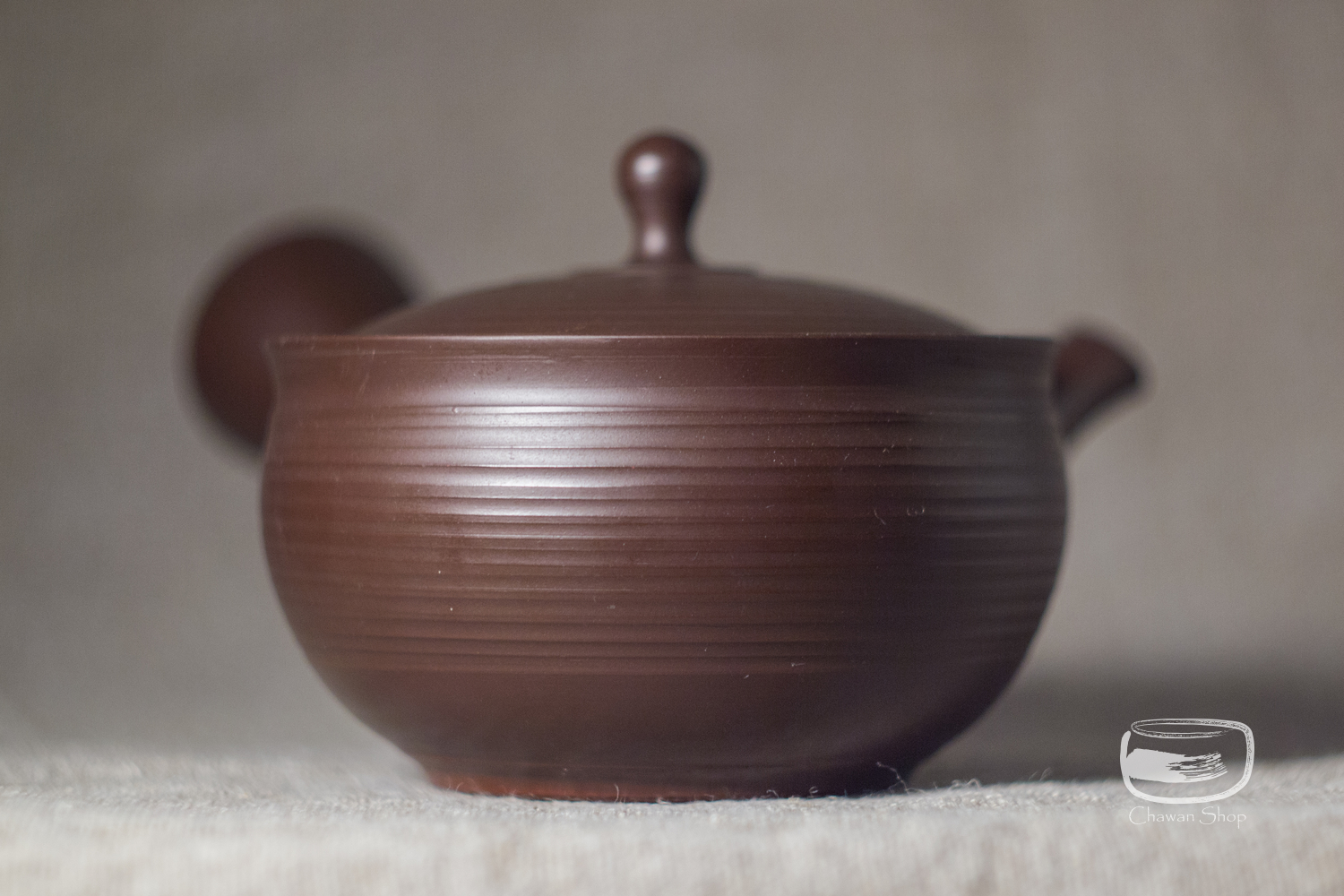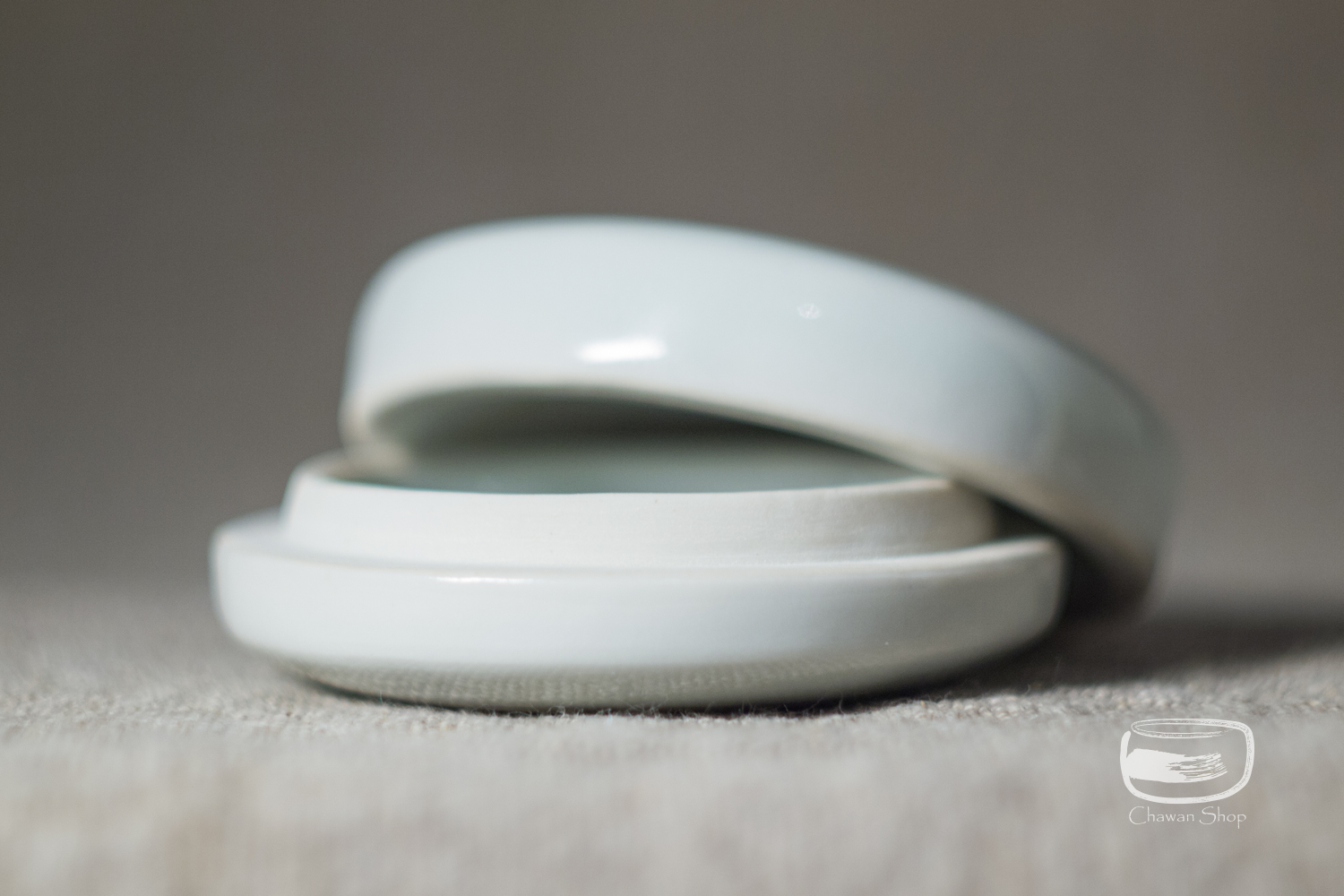
Some of bowls are grilled in the kiln piece by piece, and those marks are from tongs used to take them out of the kiln. Tongs may or may not leave a mark on a vessel at the point of contact. The potter can cool the tongs in water before they enter the kiln and their cooled surface immediately harden the glaze, so there will be no impressions left on the surface.
But in Japan, Raku tea bowls with tong marks hold more value, for evidence of them being made carefully and individually. Also, the Japanese believe that these imperfections make the bowls more artistic and valuable.

































